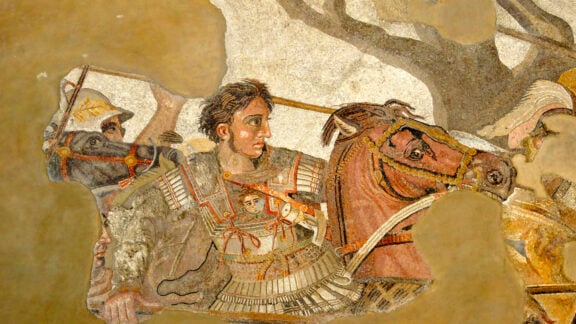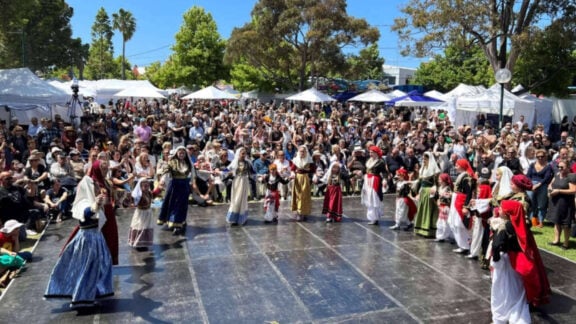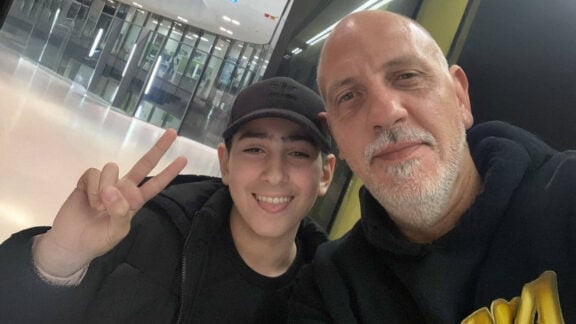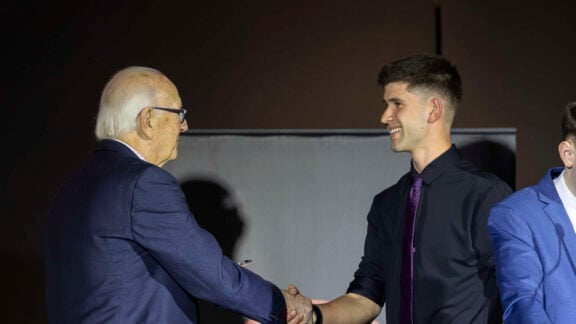The past few decades have seen a growing movement to promote the Greco-Roman Classics in charter schools, home school curricula, and some collegiate institutions in the United States. For Australian audiences who do not know charter schools, simply, charter schools have significant independence from standard curriculum agreed to by the state.
In the US, charter schools are autonomous, and unlike Independent, Catholic and faith-or language-based schools in Australia, that adhere to the rules set by a state’s department of education, charter schools operate outside public-school rules. They have freedom to teach what, and how they want to.
Concerns over accountability, equity, and financial oversight and ideological foci have arisen. A charter school may decide to dump biological evolution for creationism or, teach that women do not have equal rights with men. These are extreme examples, nevertheless, in an increasingly autocratic country, it is a concern.
Classics and US charter schools
The past few years have seen a growing movement to promote the Greco-Roman Classics in charter schools, home school curricula, and some collegiate institutions in the United States (and elsewhere). The Homeric epics have earned a dubious place among the calls for reform (or, alas, return). Elon Musk has expressed admiration for the Iliad and one of the proponents of the Classical Learning Test, Jeremy Wayne Tate, has advocated for patterning one’s life after Odysseus. Odysseus is having a moment himself. From the popularity of Emily Wilson’s translation to Christopher Nolan’s coming feature film, the Odyssey is everywhere.
Despite this attention, the Odyssey’s politics have not received a lot of attention. There’s a civic conflict at the epic’s end with a sudden, artificial resolution that can speak to divisive politics, irreconcilable differences, and the cost of ending generational cycles of violence. There are some good reasons for this oversight. For one, the ending conflict is confusing and Zeus’ sudden intervention leaves little space for reflection, or elaboration. For another, the final book seems a sudden departure from the plot that leads to Odysseus’ homecoming. Indeed, some have found Odyssey 24 so jarring that they cannot accommodate it as part of the “original” poem.
But there are good reasons that the Odyssey ends the way it does. Odysseus’ visit with his father, for example, completes the series of reunions that confirm Odysseus’ identity in full as a son, a husband, and a father himself. And the assembly of the suitors’ families in the middle of the book, followed by the sudden divine intervention, returns us to the provides a vehicle for the epic’s final reunion: the return of a king to his people.
Let me provide a quick summary of the political situation in Ithaca before the epic’s end. Twenty years prior, the king of the Ithaca went away to war, taking with him twelve ships and leaving behind a wife, a newborn son, and elderly father. Seven years after the end of the war, when the rest of the kings of Greece had already returned, or their deaths had been confirmed, a number of suitors arrived at Odysseus’ home to try to force a decision on the king’s presumed widow. In the 17 years since his departure, there had been neither an assembly or a council meeting. The operations of the state had simply ceased. The king’s wife promised to choose one of them after completing a death shroud for her father-in-law, the ex-king, who has mysteriously retreated to a garden villa. The aristocrats who have come vying to lead Ithaca discover that the queen has deceived them. Soon after this, the king’s son departs for news of his father and the suitors plan to have him killed.
The king returns without Ithaca’s youth
None of the suitors or their families hear a word about Odysseus until he shows up, suddenly and magically, in the middle of the banquet meant to provide a match for his wife, where he proceeds to murder most of the people in his home. As the rumor spreads across the island, the people of Ithaca and the surrounding island learn not only that 108 of the ‘best’ men among them have been slaughtered, but that none of the soldiers who went to Troy came home with their king. For these families, the youth of Ithaca were either butchered in the home of the king or simply disappeared.
An assembly divided
When the families hold their own assembly, the argument has two basic sides. From one, Odysseus has murdered their family members and returned without his ships and men, so he must be punished before he seeks allies in the mainland. From the other side, Odysseus has acted with the prerogatives of a king supported by the gods—accordingly, Odysseus was within his rights as a king and a husband to punish people who transgressed the hospitality of his household and threatened the sanctity of his family.
The assembly splits in half as contingents either return to their homes to mourn the dead or arm themselves to face Odysseus. The first (and only) casualty is the leader of the opposition, slain by a rejuvenated Laertes. At that moment, Athena arrives, empowered by Zeus to charge them to “let wealth and peace be enough” and to enforce the “forgetting of the slaughter of their children and kinspeople”.
The impossibility of resolution
In this moment, the Odyssey may offer a very simple reflection on the impossibility of resolving some conflicts. For each party on Ithaca, the relationships that gave their lives meaning commit them to certain actions. Odysseus cannot be king without enforcing the primacy of his household over the state; the Ithacans cannot continue to be subjects to a king who has murdered their families. The only solution Zeus offers is the erasure of the identity that disrupts the stability of this imaginary land.
Some modern readers have tried to make sense of the epic’s political message. The story may be pitched to the experiences of Greeks across different cities in the archaic and early classical age where we find a variety of political institutions, from the dual kingship and oligarchy of Sparta to the aristocratic democracy of Athens. As political allegory, then, the return of Odysseus could be the reassertion of a monarch over a fractious oligarchy. The Odyssey could be seen as advocating for the expedience of autocracy over the corrupted dangers of oligarchy (or, perhaps, a proto-democracy).
Of course, the interpretation could go the other way as well: the poem’s sudden ending and the jarring discordance of the erasure of memory may be setting up a paradox. Athena’s appearance is equivalent to a dea ex machina from Greek tragedy, when the plot has reached such a point that only the gods can bring the conflict (and the plot) to its end.
No paths to glory
This moment is also akin to what we find in the early Socratic dialogues, that aporia (ἀπορία) “pathlessness”) that prompts Socrates and his interlocutors to realise that their arguments’ conclusions are invalid and they must start over again. Thus, the Odyssey’s end provides a necessarily unclear message to prompt a questioning of the basic premises of its world.
Therefore, it is also possible that the end of the epic aims to emphasise the cost of capitulating to the demands of autocracy. Such a reading shows us both the extremes a king will go to in order to protect his own privileges and the cost his people must pay in order to enjoy the benefits of his rule: some of them will die, and those who survive will have to forget it.
No winners in Homer’s or Vergil’s story
The Odyssey does not make backing for either side easy. The people of Ithaca are shown to mistreat Odysseus in his home, disrespect his family, and plot to murder his only son. Their king, long absent while executing the military duties of his office, returned to a state in disrepair where his wealth and his family was at risk.
Because this autocracy elevates the wealth of one household over the health of the state—or, at the very least renders the wealth of this household equivalent to the health of the state—it cannot survive unless the (im)balance is restored. In this case, no part of the political situation is sustainable. To sacrifice the many for the sake of the one runs against the very structure of larger states. In vibrant, diverse cities like ancient Athens, the end of the Odyssey may have commended the choice for democracy and a continued resistance to tyranny.
I think such meaning was implicitly read in antiquity. Vergil’s Aeneid offers a literary reception of Zeus’ final ‘solution’ at its conclusion. One of the primary conflicts during the Roman epic surfaces when we learn about the hatred of Juno (Roman Hera) for the Trojans. Even after the fall of the city, she is not content to let these refugees survive and live on. She is instrumental in harrying them across the Mediterranean and into Italy where she supports the native Italians against them.
Despite her opposition, the Trojans establish themselves on the Peninsula, gain allies, and put themselves and their traditions on the path to survival. But near the poem’s conclusion, she only accedes to their existence when Zeus promises her that they will assimilate with the Italian people, adopt their language and customs, and leave what was Trojan behind.
The problem at the end of the Aeneid is akin to the Odyssey’s closure, but on a much greater scale. What does it mean to survive as a people, bereft of the language and ways that made you who you are? This is the same choice offered to the suitors’ families at the Odyssey’s end. The Aeneid’s imperial end suggests that if we cannot live with each other because of who we are (and the histories and stories that made us), our only option to live at all is to give up who we were and become someone else entirely.
The logic of violence and erasure at the end of the Odyssey operates still today. The resurgence of autocracy worldwide imposes an order that makes erasure of history and obliteration of difference the cost of mere survival. Refusal to assimilate or comply is increasingly met with threats of and actual violence. Zeus promises the Ithacans wealth and peace for the betrayal of their loved ones. Today, what do we stand to gain?
* Joel P. Christensen, Professor of Classics, Provost and Senior Vice President for Academic Affairs, CUNY Graduate Center.









